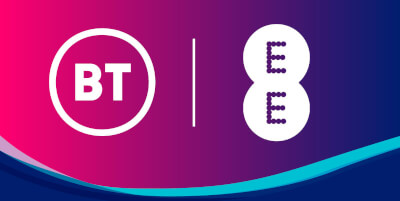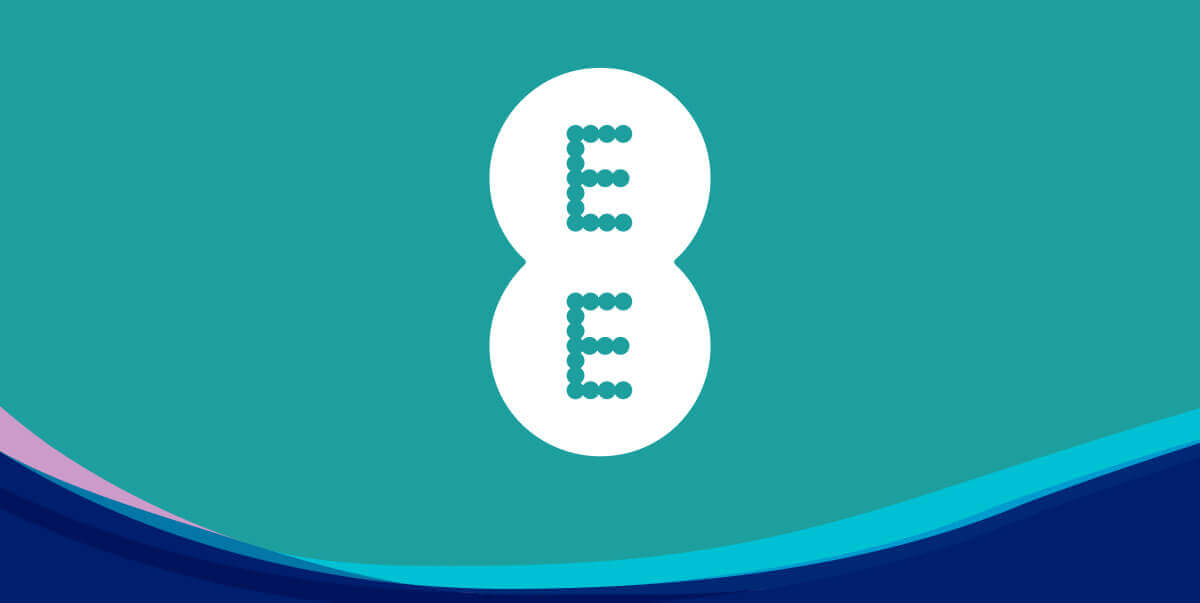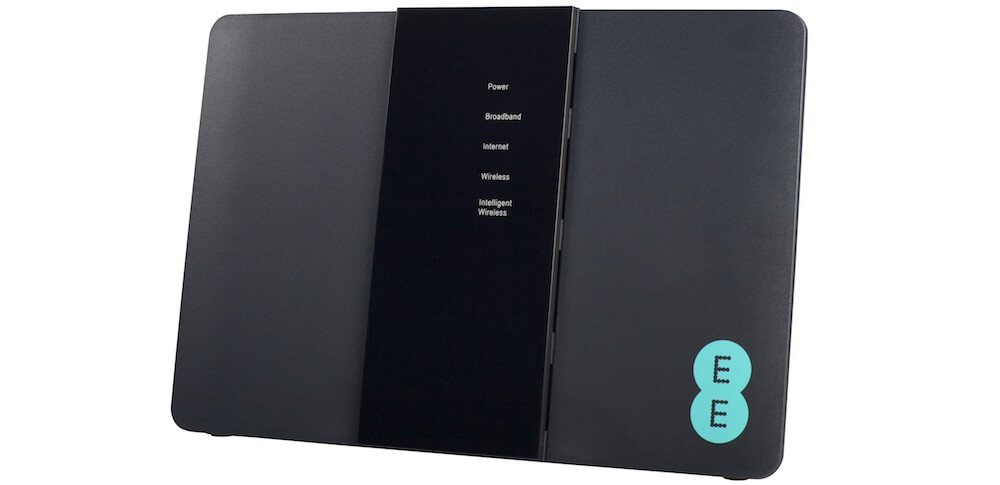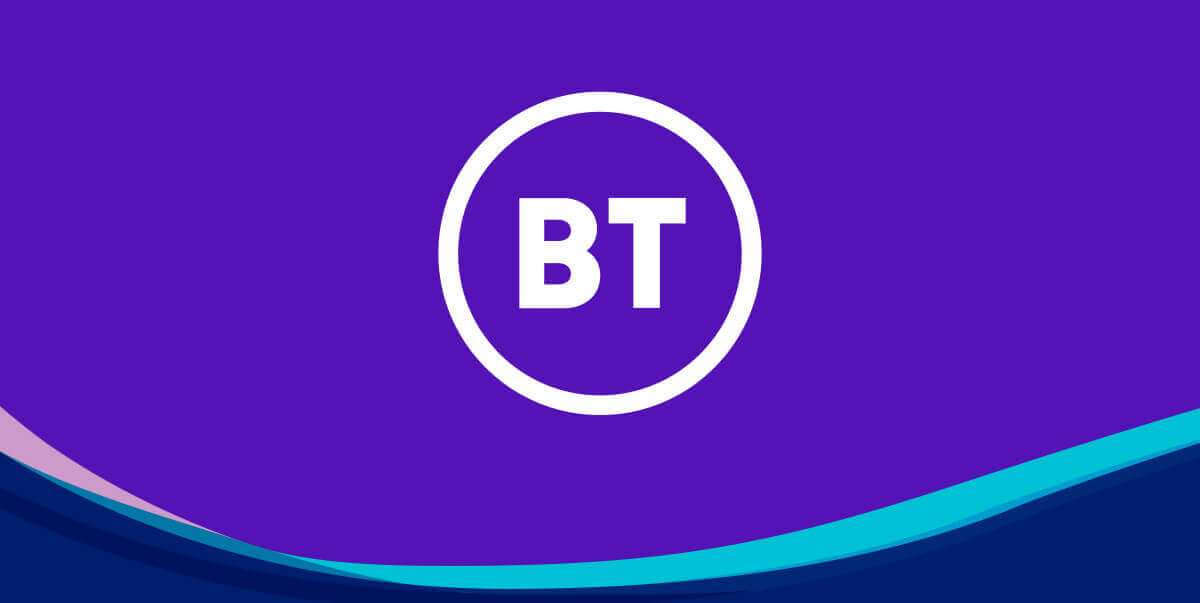BT broadband vs EE broadband: Which is best?
 Dan Howdle • November 11th, 2024
Dan Howdle • November 11th, 2024

BT or EE... which pair of letters should you trust to deliver you the best broadband package possible? Because although BT does own EE, and at one time their offerings were quite similar, there are now some stark differences in the packages and gear offered by each provider.
BT has remained focused on providing ordinary, reliable broadband to the mainstream, while EE has pivoted to offering the fastest broadband in the country with the best routers and equipment, aimed at enthusiasts, gamers and home workers who need maximul oomph. Let's see how that compares.
Key feature comparison
Here's a quick feature comparison on how BT and EE stack up.
| Feature | BT Broadband | EE Broadband |
|---|---|---|
| Download speeds | Up to 900Mbps | Up to 1.6Gbps |
| Upload speeds | Up to 110Mbps | Up to 115Mbps |
| Router | BT Smart Hub 2 | EE Smart Hub or Smart Hub Pro |
| Network | Openreach | Openreach |
Broadband speed

Winner: EE Broadband
When it comes to choice, EE offers a greater range of packages than BT with the inclusion of its 1.6Gbps speed – a speed BT cannot currently reach. Pricewise there is little to choose between the providers when comparing speeds like for like, and BT also offers 10Mbps ADSL packages to homes that can't get anything faster, where EE does not.
EE's twelve package tiers include three Standard Fibre options averaging 37Mbps, 51Mbps and 74Mbps and nine ultrafast Full Fibre speeds of 37Mbps, 51Mbps, 74Mbps, 149Mbps, 308Mbps, 500Mbps, 900Mbps, 1.6Gbps and a version of the 1.6Gbps that includes and Xbox Gamepass. Meanwhile, BT offers one ADSL package at 10Mbps (only available if it's all you can get), three Standard Fibre packages of 36Mbps, 50Mbps and 67Mbps, and four Full Fibre packages at 150Mbps, 300Mbps, 500Mbps and 900Mbps.
Both providers offer their packages on either a 12-month or a 24-month contract but deliberately do not advertise their 12-month versions – because they'd rather you signed up to for two years. You can choose them at the checkout if you so desire, but 12-month options are around 15% more expensive than the 24-month versions on average – again nudging you towards choosing the longer contract.
BT provides its Stay Fast Guarantee to all its broadband customers, providing reassurance of a minimum speed, regardless of which package you choose. EE also shows the minimum guaranteed download speed new customers can expect to receive, regardless of the package they choose, so both providers offer reassurance when it comes to knowing what speed you are actually likely to get.
-
 Full Fibre 75
Full Fibre 75- 75Mb average speed +
- Unlimited usage +
- No phone line
£23.00 per month(prices may change during contract)£5 one-off cost24 month contract -
 Superfast
Superfast- 63Mb average speed +
- Unlimited usage +
- PAYG calls
£23.00 per month(prices may change during contract)£5 one-off cost24 month contract -
 Fibre 2 Broadband
Fibre 2 Broadband- 67Mb average speed +
- Unlimited usage +
- PAYG calls
£24.00 per month(increases annually on 1st April by £3)£0 one-off cost24 month contract
Packages

Winner: EE Broadband
EE Broadband has completely re-oriented its offering recently to carve a niche for itself among gamers and other types of home user who are in need of the fastest broadband with the best possible equipment. It offers unique, gamer-focused features you won't find with any other provider and is the first provider in the UK to offer a Wi-Fi 7 router, which is the fastest Wi-Fi in existence at this current time, provided your devices are Wi-Fi 7 compatible. If not, you can still have it, but you won't be able to take advantage of the extra speed. It only comes with the top 1.6Gbps package, but you can upgrade to it if you get something slower, albeit for a fee.
Both providers offer whole-home Wi-Fi solutions where you can add mesh devices to ensure signal reaches all corners of your home. You can get two mesh extenders free with EE Broadband, called 'Smart WiFi', and that really should be enough for almost any home unless you live in a castle. BT on the other hand offers its 'Complete Wifi' as an add-on, usually sold at around £10 per month on top of your bill. Alternatively you can buy the BT mesh extender discs outright to avoid the fee, but they aren't cheap.
In general, EE just has a lot more packages available, even though it no longer sells ADSL, and the provider puts more focus on getting you the best Wi-Fi performance possible, where BT has a more standardised offering with fewer options or ways to tweak your home broadband performance.
Customer service

Winner: EE Broadband
EE has the edge over BT when it comes to customer service satisfaction overall, with higher ratings in the most recent Ofcom survey, although both sit above the sector average.
BT doesn't exactly have the best track record in this field, but is now doing much bettercoming out near to the top in the most recent Ofcom report with an overall customer satisfaction rating of 83 per cent, just a touch above the sector average of 82 per cent.
In comparison, EE also ranked highly, coming in second place (Plusnet, also owned by BT, came first), with 85 per cent of customers satisfied with their service. When it comes to satisfaction with complaint handling specifically, BT and EE are neck and neck on 55 per cent, both well above the industry average of 51 per cent.
Customer service lines for BT are open from 8am to 9pm during the week and 8am to 8pm on Saturday, while EE’s phone line is open from 8am to 9pm Monday to Friday and 8am to 8pm at the weekend. Both providers offer live chat and are also contactable via social media on Twitter and Facebook. Both BT and EE pride themselves on the fact that their call centres are all either UK or Ireland-based.
Router and technology
Winner: EE Broadband
There is absolutely nothing between the two providers when it comes to routers the routers offered on basic packages, with both providing the same Smart Hub 2 with different branding. However, things get more interesting in the top-tier packages, where EE Broadband offers its Smart Hub Pro – the UK's first Wi-Fi 7 router offered by a major broadband provider. It launched recently, just as other providers are just catching up and offering Wi-Fi 6. EE is determined to be ahead of the game when it comes to broadband and Wi-Fi technology.

The Smart Hub 2s are very capable though. Dual band routers that use smart scanning to automatically connect to the best wireless channels, ensuring your devices receive the optimum speed at all times. They are also equipped with four gigabit ports so you can connect up to four devices via ethernet cable if required, and the seven antennae ensure a good signal reach around your home.
Extras

Winner: BT Broadband
BT edges ahead in terms of broadband extras, thanks to its extensive security options and the added convenience of millions of public Wi-Fi hotspots. However, EE offers some strong benefits for those who bundle their broadband with an EE mobile plan, including exclusive data boosts.
BT takes online security seriously with its built-in three-pronged defence system. Parental Controls allow you to manage what content can be accessed on devices in your household, Virus Protect covers up to 15 devices against malicious software, and Web Protect alerts you to any suspicious websites while you browse.
EE’s security offering is more limited compared to BT, as the 12-month free subscription to Norton Security Premium it once offered is no longer included. However, EE’s Smart WiFi functionality within the EE Smart Hub router optimises Wi-Fi throughout the home, allowing you to better control network access and boost the signal where needed.
BT no longer offers its own SIM-only mobile deals, and directs broadband customers to EE’s mobile services. Existing EE mobile customers signing up for EE broadband receive a 10% discount on their broadband, and EE mobile customers can receive up to 20GB of additional data each month on their mobile plan at no extra cost, providing extra value for those with both EE broadband and mobile.
Both BT and EE allow customers to add a landline to their broadband package if desired, with call packages available for anytime, evening, and weekend calls for an extra monthly fee.
Overall

Winner: EE Broadband
If this were a competition of who covers the most bases, or who is the best generalist, we'd have to go with BT. But really we're measuring who has the best broadband here, and thanks to EE's top-flight technology and focus on the power user, it is the provider of the two that offers things the other simply doesn't.
Either provider is a good choice, and we'd certainly understand choosing BT – it is above average in every category. However, if you want the best router in the country, or Full Fibre speeds exceeding 1Gbps, EE Broadband has that space pretty much to itself.
